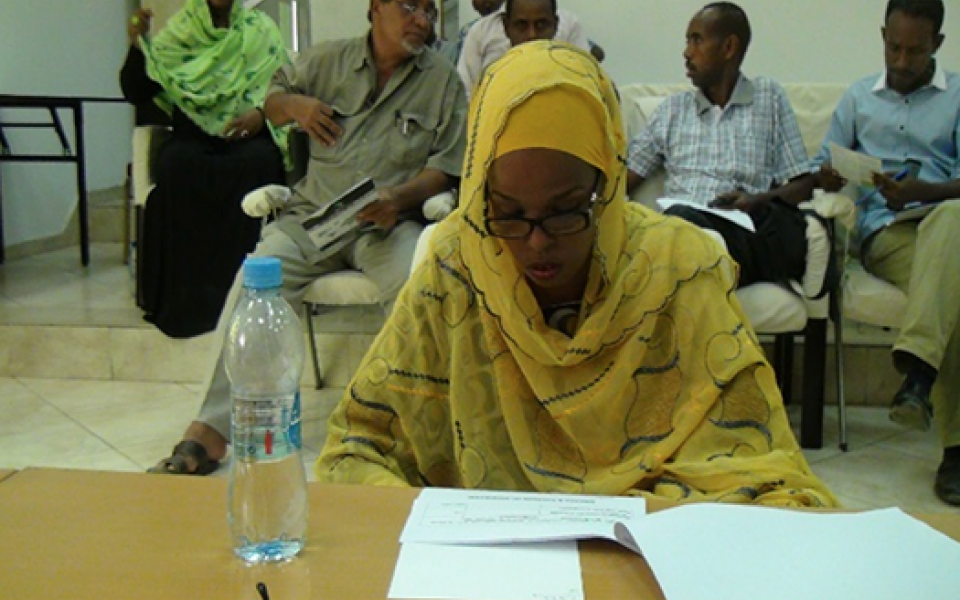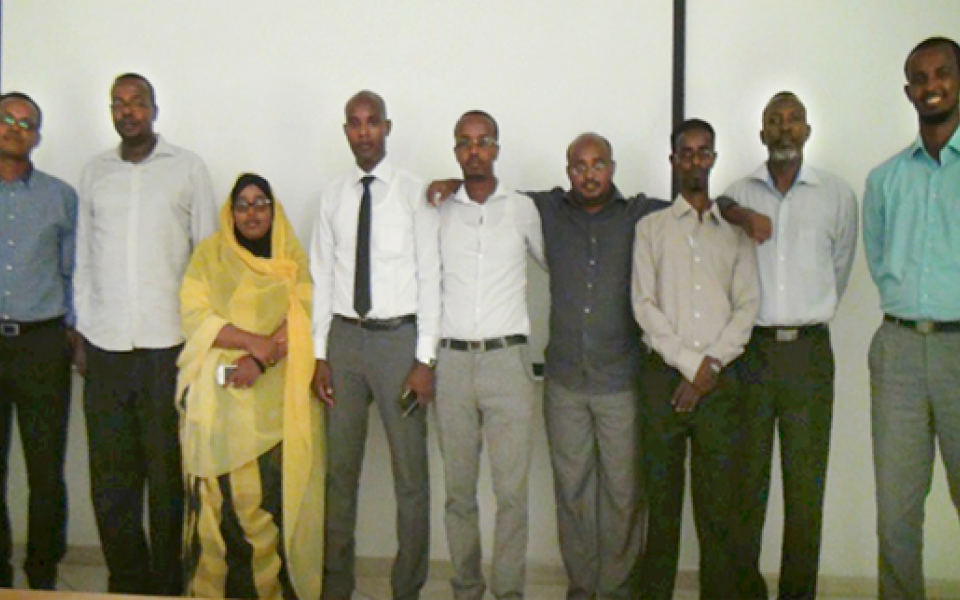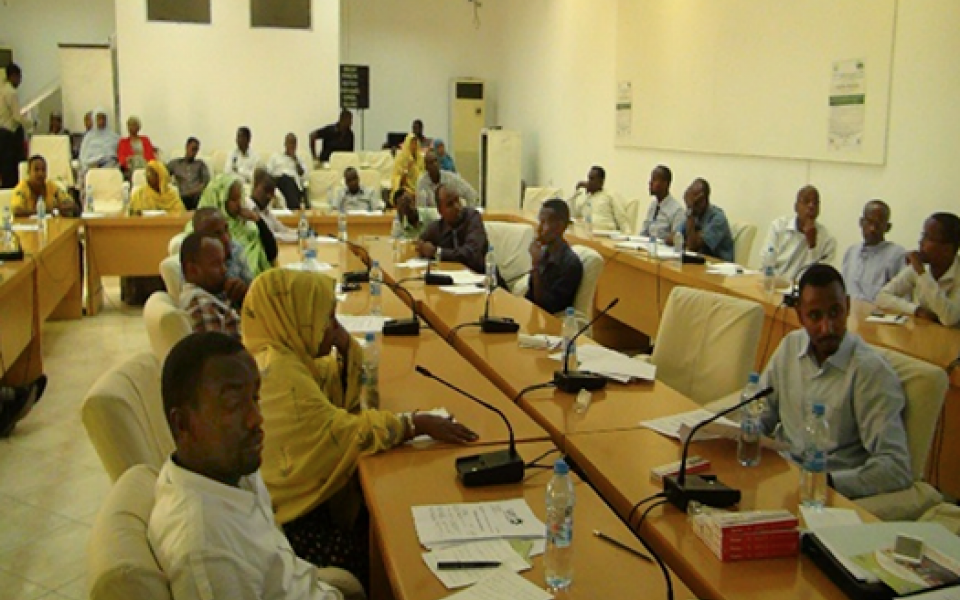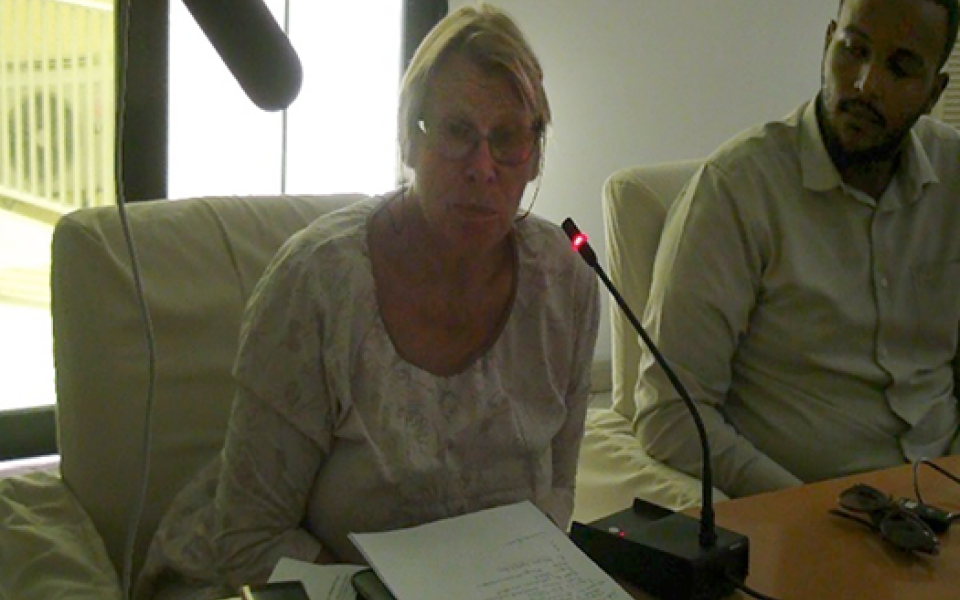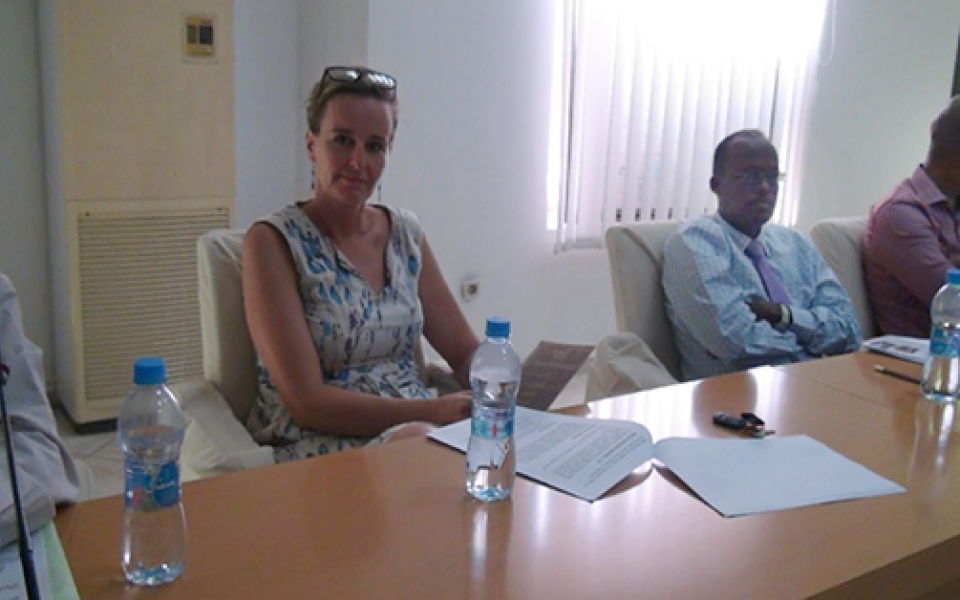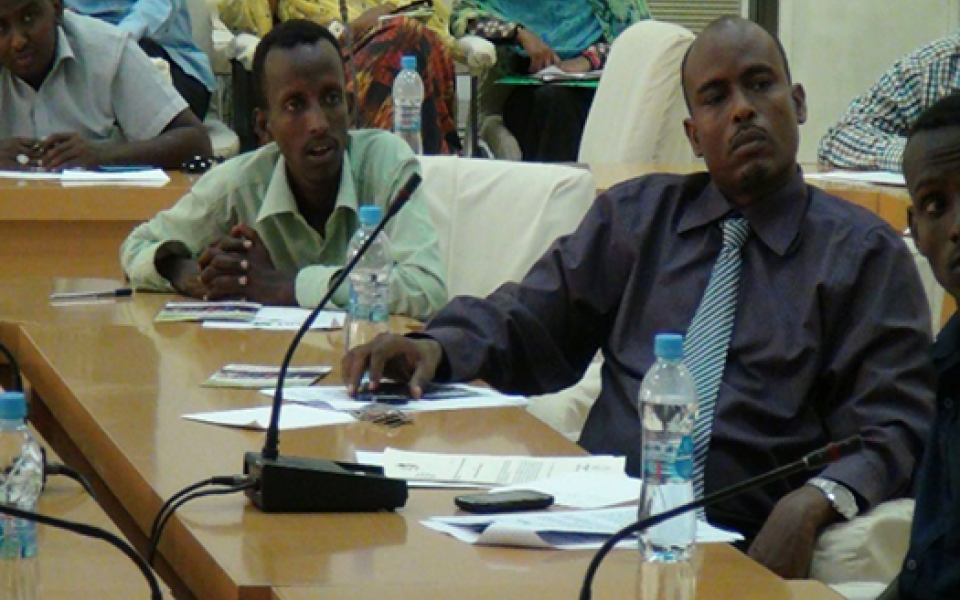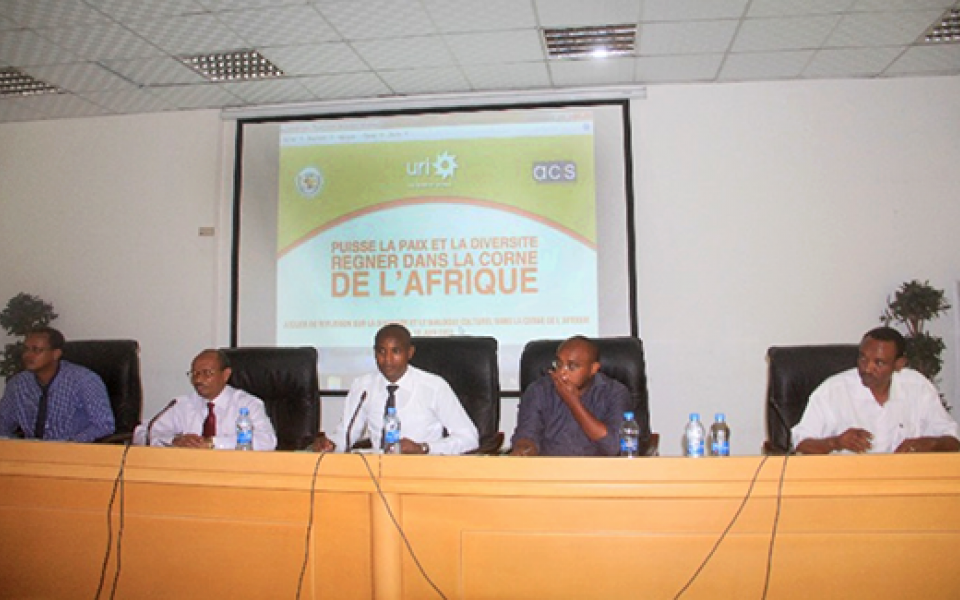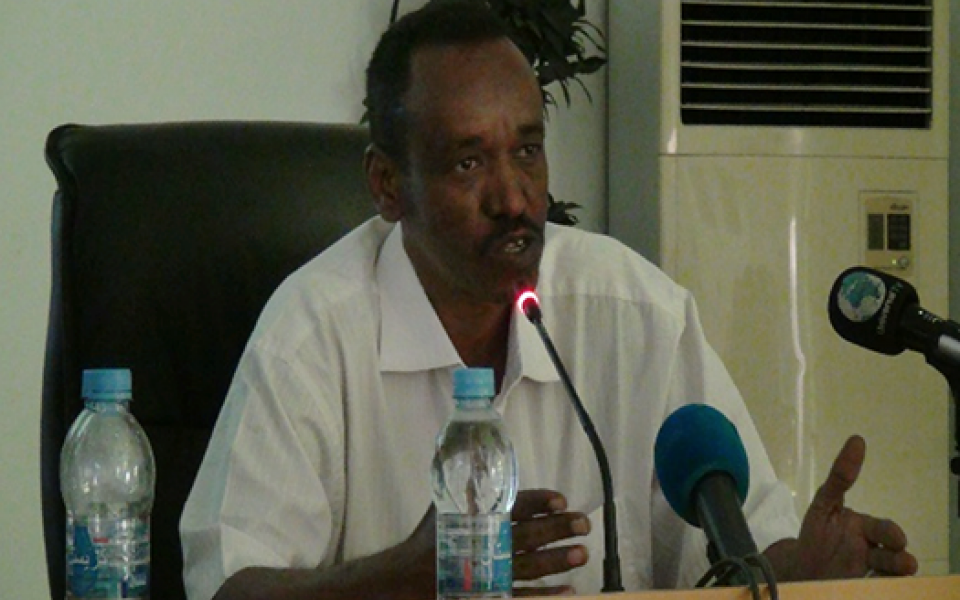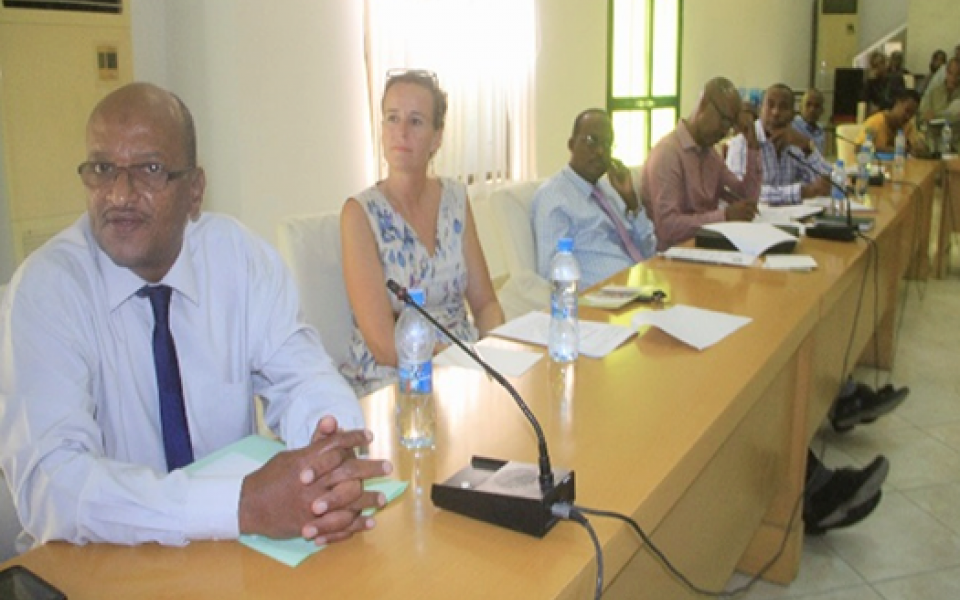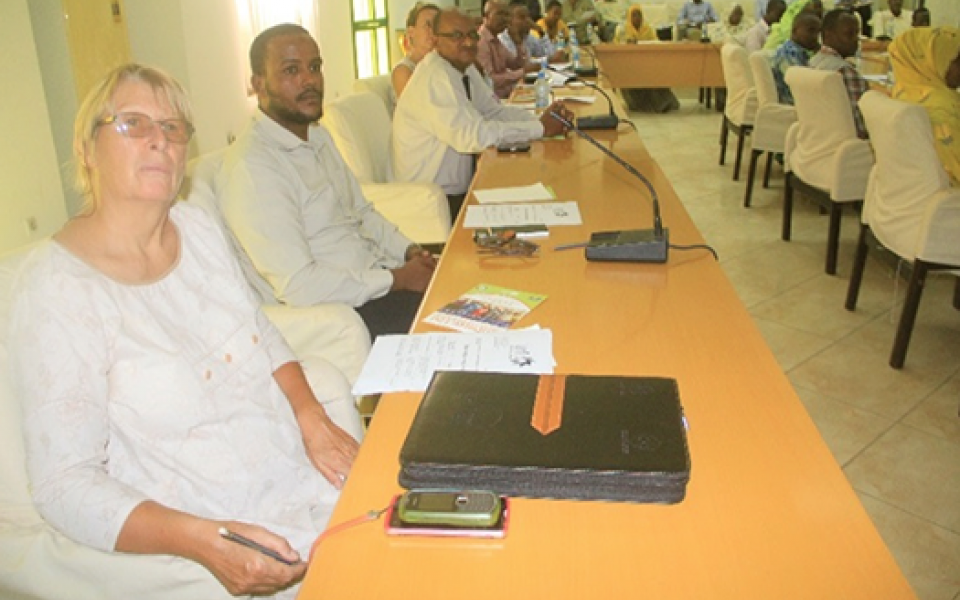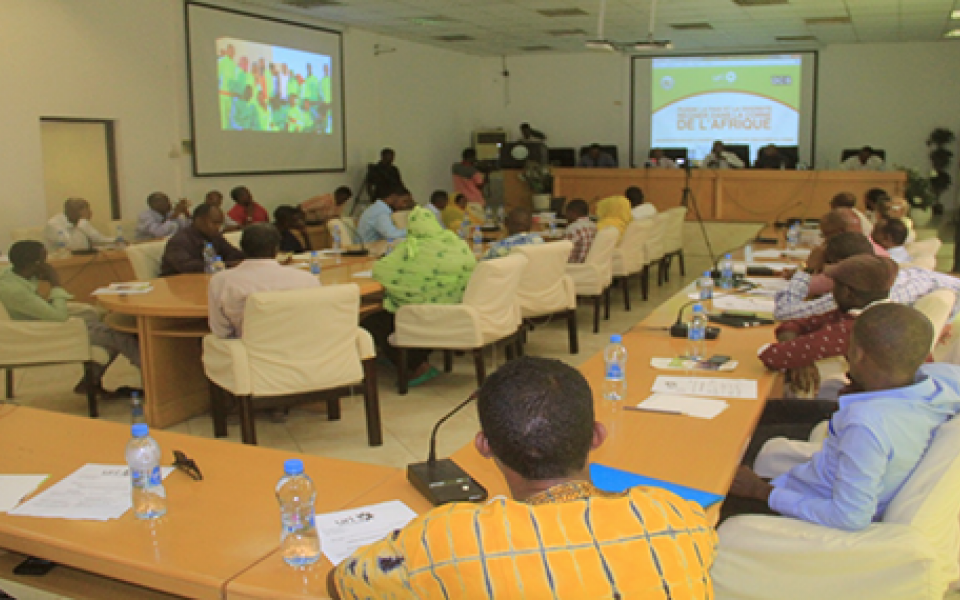
Report on the Reflection Workshop "On Diversity and Intercultural Dialogue in the Horn of Africa"
16 June 2015 in the IGAD Conference Room
Djibouti 2015
INTRODUCTION
At this time, Globalization is leaving havoc in its wake, leaving the world in a culture of standardization, and turning it into a 'Global Village' of all the same culture. The issue of cultural diversity has never before so concerned governments and thinkers as at the beginning of the XXI century. Cultural diversity is what constitutes the wealth of the human species in its entirety. Diversity and intercultural dialogue have always promoted exchanges among peoples in all fields.
It is in this light that the URI NGO “brings his stone to the building” by opening the debate on this issue that is "Diversity and Intercultural Dialogue in the Horn of Africa."
The objectives of this brainstorming workshop are:
- To analyze cultural diversity in all its components, pointing to the complexity of the processes at work, while earning a common thread among the many interpretations that this dialogue can open to better live together in peace
- Show the importance of the issue of cultural diversity in different areas of intervention (language, culture, religious, ethnic... ) and which prove essential for the preservation and promotion of cultural diversity in the Horn of Africa
- Strengthen the role of intellectuals in promoting peace and culture of dialogue
- Reinforce the commitment of youth in civic participation through the organization of workshops / conferences, experience on national and regional exchange
- Make Djibouti and IGAD a meeting hub, exchange and sharing of experiences between the youth of the Horn of Africa
- Promote youth leadership to strengthen the capacity of future leaders
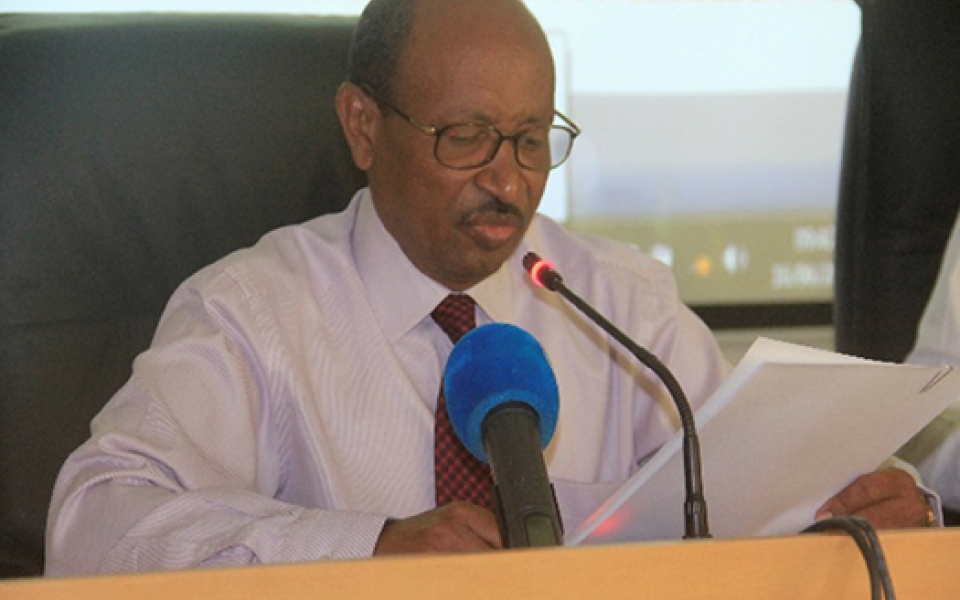
Speech by Acting Executive Secretary of IGAD Mohamed Moussa
IGAD has the honor and privilege of hosting this important workshop, organized under the theme of diversity and dialogue in the Horn of Africa.
IGAD, by accessing the request of URI international NGOs to organize this workshop in the conference room of our regional institution, holds by this gesture, to testify their esteem to the URI location that is a structure of regional and international civil society headquartered in Djibouti City.
The Intergovernmental Authority on Development (IGAD) was created in Djibouti. There are nearly 30 years in the context of wars and famines that ravaged this part of our continent. Now more than ever it is the international organization of reference for all States in the region of the Horn of Africa and East Africa.
IGAD has indeed this unique mandate, this essential responsibility to work for the promotion of peace, security and socio-economic development of the States and peoples of this vast sub-region.
IGAD is a cornerstone in the building of the African Union and, as such, represents one of the eight Regional Economic Groupings of our continent.
This force of the legitimacy of IGAD follows both the mandate which invested seven Member States, as well as hundreds of million citizens, of this vast geographical area with natural potential, incommensurable both cultural and economic.
Here IGAD is imbued with a deep respect of interest: we welcome the work of thinking that the URI NGO organizes today on a cross-cutting theme, which is of paramount importance for the member countries and our civil societies (Khartoum to Kampala, via Juba, Addis Ababa, Nairobi and Mogadishu).
As you pointed out in your letter to the Executive Secretary of IGAD address, that your URI NGO is manifest and is involved through multiple initiatives to promote and intercultural understanding between peoples in our region, is an additional factor of hope for a brighter future.
Indeed, IGAD is convinced from the outset, by its experience of the last thirty years, of the importance of dialogue and rapprochement between peoples and parties in conflicts of various kinds that have continued to ravage our region.
Thanks to the constructive and tireless efforts of the IGAD through its structures of mediation and conflict resolution, our sub-region has witnessed the negotiated solution to the long conflict in Sudan and peaceful birth of a new State. South Sudan has naturally joined our sub-regional organization.
Similarly, the multidimensional efforts of IGAD for a restoration of the rule of law in Somalia permit a slow but inexorable return of lasting peace in a country transformed for years in an ideal bastion for all forms of transnational threats that are criminal or terrorist in nature.
The theme of reflection that brings us therefore takes all its relevance to current challenges raised by the consolidation and promotion of peace in our sub region.
IGAD wishes to acknowledge and encourage URI for its involvement in the promotion of a culture of peace in our region.
Indeed, whether they be solidarity, harmony and social peace, peaceful coexistence and tolerance, all these steps are conditioned and pass through one single prior; namely, the establishment of a fair and just dialogue between all the social components of our vast region.
We train by IGAD our vows at the location of your thoughts work on such a complex topic and just as central to the future of our harmonious human society.
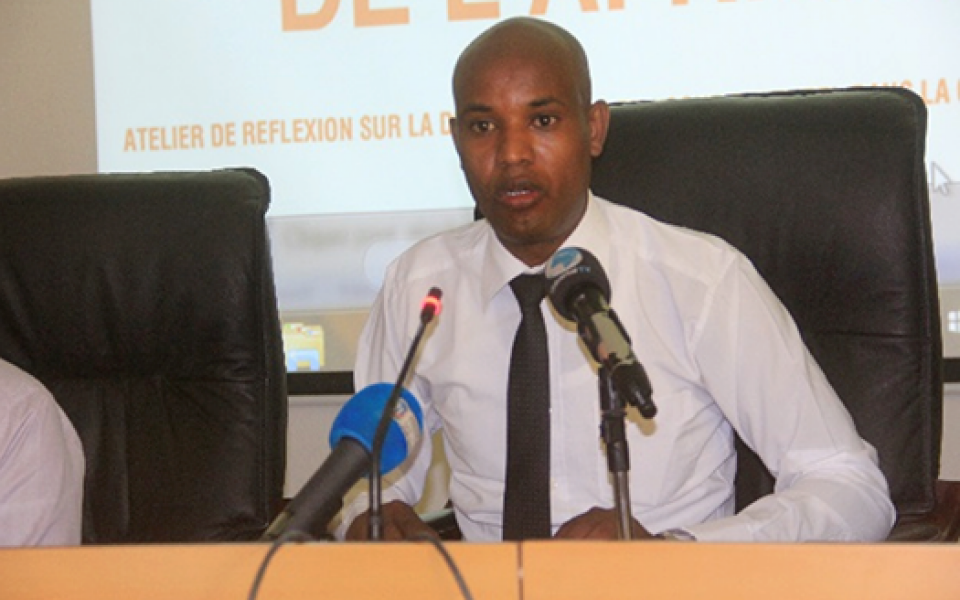
Speech of regional coordinator URI-Horn of Africa
Mr. Mahamoud Ahmed
Mr. Secretary of IGAD, Mr. Director of Culture, men, ladies, and members of parliament, ladies and gentlemen members of URI Cooperation Circles, associations, civil society, honorable guests and participants.
We are here to discuss a theme, such as the secretary of IGAD has designated, complex and very important, but before we get into the thick of things, I would remind you what URI is.
URI is a network of organizations campaigning for the promotion of peace culture and intercultural dialogue, inter-religious understanding of 'the Other', so that the difference of 'the Other' is not a factor problem but rather an asset.
The genesis and URI of history was born in 1993 on the fiftieth anniversary of the United Nations; when the Secretary General of the United Nations Boutros Boutros-Ghali asked the Right Rev. William E. Swing (California Episcopal Bishop at the time) to host an interfaith service honoring the 50th anniversary of the signing of the UN charter.
Since 2000, URI has become an organization which has a consultative seat at the United Nations and the Economic and Social Commission of the African Union. URI is well represented in these two institutions, both international and continental scope.
Since URI insertion advocates and works for the promotion of peace, culture of dialogue and intercultural discussions to strengthen the social development that we all seek, since it requires an understanding and acceptance of the difference of the other.
URI Horn of Africa began its work in 2012, and in 2014 moved to Djibouti URI. On this occasion, we celebrated the World Day of Peace in 2014, and today we find ourselves in this brainstorming workshop on Diversity and Intercultural Dialogue in the Horn of Africa. But the diversity in nature is extensive and includes the ethnic, religious, linguistic etc.
The purpose of our meeting today is to launch the slopes, to create a dynamic that allows us to understand the difference of 'the Other' and assimilate the culture of 'the Other' in order to leave some something valuable and tangible for communities to live together and create a space for dialogue.
Nelson Mandela said that 'education is the most important weapon to change value and morals.' Although we’re sure that education is a weapon that changes things, we know that Somali education has almost no longer existed since 1991. What are we to tell these children that have known nothing but war and these atrocities?
Today, what we do is to support them to change their trajectory that war gave them. Share their visions, their cultures, their lives and their stories.
I hope that today we will fly over how diversity can be an asset for social development, because it would actually say that when a country is in peace, that is when social justice is achieved. That is when knowledge is put at the service of the nation and finds space to really express a solution-finding role so that communities can live in peace; so that they devote their energy to the socio-economic development of their country
Thank you.
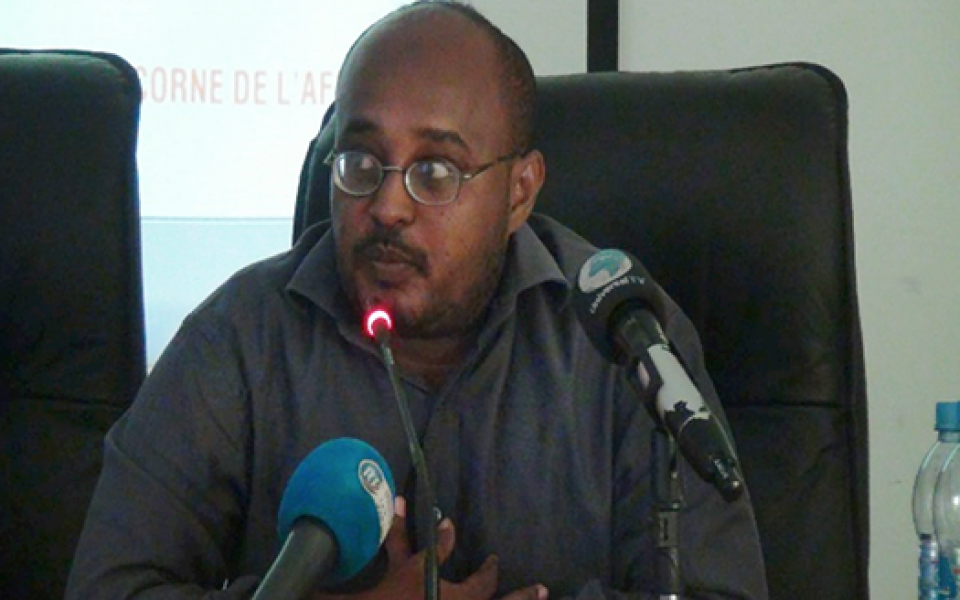
Intervention by a teacher, philosopher, anthropologist and sociologist - Mr. Gueid Hassan Elmi: “Diversity and Intercultural Dialogue in the Horn of Africa”
This intervention on cultural diversity and dialogue is defined from a philosophical and sociological point of view.
UNESCO, in the Mexico City Declaration on Cultural Policies at the World Conference on Cultural Policies Mexico City, 26 July to 6 August 1982, has redefined the notion of culture in a more enriched way. "Culture can be today the whole complex of distinctive spiritual, material, intellectual and emotional features that characterize a society or social group. It encompasses, in addition to art and literature, lifestyles, fundamental rights of the human being, value systems, traditions and beliefs."
And cultural diversity means in this direction unlike the 'Other', another culture who owns these paradigms. Cultural diversity is to accept the other in his integrity. It differs in many ways. Religiously, the Horn of Africa is home to Sunni Islam, Judaism, Christianity, and Orthodoxy.
Linguistically and gastronomically, and artistically, but above all, tourist places like Harar, Somalia and other countries in the Horn of Africa, there is not only a palpable diversity, but also an intellectual wealth.
See cultural diversity as a richness, a skill, a value, a challenge and not as a threat. We must accept what is different because it is our difference is what makes us rich. Thus the notion of living together does its work.
Living together is the cement of peace, well-being, and above all the expression of all the components that make the wealth in the Horn of Africa.
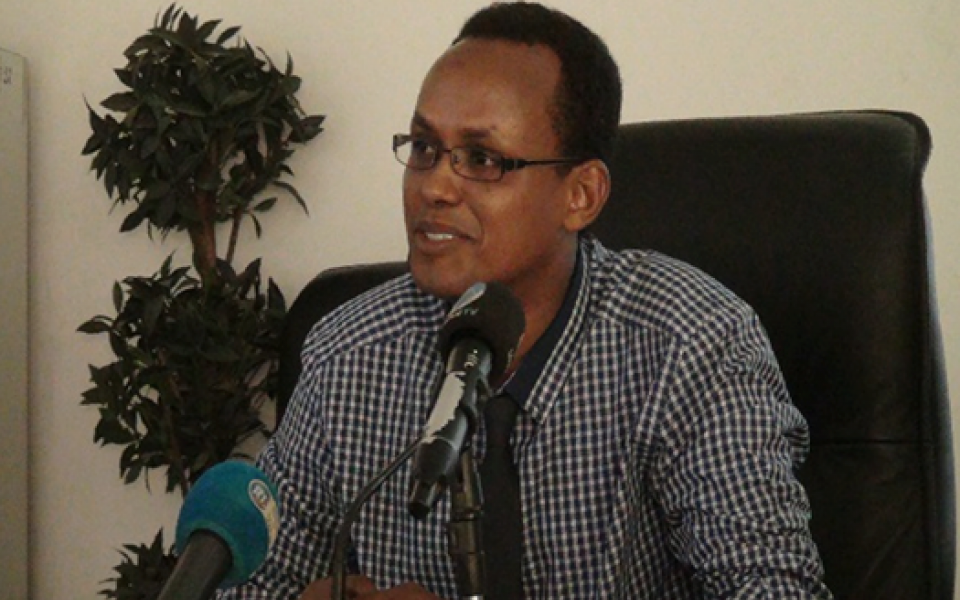
Intervention by a researcher and political scientist of CERD - Mr. Aden Omar Abdillahi: “The Diversity Management in the Context of Djibouti”
This part was to present how the distribution of this diversity is in a specific case: that of the Republic of Djibouti.
Cultural diversity is the fruit of the history of each country. Djibouti’s cultural diversity results in part from colonial influences, like many African countries. Border traced aberrant, an ethnic mosaic subject to a single authority, and disparate peoples forced to live together under the banner of an imported structure of Europe. We refer to the state. Colonization has also bequeathed ethnic tensions that were once crucial to the colonial power sitting on Indigenous Populations. The number of tactics used by the colonizer are reproduced after independence by African and unpopular regimes sorely lacking imagination. Many of these ethnic tensions, inherited from colonization, persisted in other forms, with other goals, and were exacerbated in some cases, resulting in deadly violent conflicts. But colonialism is not at the origin of all diversity. The lives of nomadic pastoralists who preceded us were not a long, calm and peaceful river. This is not a characteristic of the region. Diversity is everywhere and always been a source of misunderstanding, whether based on ethnicity, race, skin color, language, religion, age, gender, income, ideological convictions and political or culture more generally.
Traditionally, the Djiboutian communities, in synthesis of the settlement of the area, had a nomadic lifestyle before importation of the modern state, following the colonization, introduced a new social and spatial organization. In this mobile environment, there is no central authority that orders and organizes, like the state, social behavior. It is a piecemeal and fragmented authority held by traditional leaders following the clans and sub-clans that are, in fact, ethnic subdivisions. However, there is a central figure, holding a number of customary moral duties and fulfilling the role of a guide, or supreme head, placed above clan leaders.
After independence, the country is in a tri-ethnic composition (Afar, Somali and Arabic), tri- language dominated by Islam as a religion and French as an official language alongside Arabic. Colonization imposed the abstract notion of State headed by individuals selected through an electoral process which is based on a set of written rules and specialized administration. This new type of power, while not completely abolishing the traditional mode of social organization, provides for all components of the Djiboutian population (Arabic, Afar and Somali) a single command center that transcends the particular customary rules. Soon ethnic diversity has turned into a cleavage factor and misunderstanding in the distribution of power and resources and the political authorities of the young state experienced a major challenge to manage.
How does the sharing of political power support ethnic diversity?
We will focus our discussion on the ethnic division of executive and legislative power based on two examples: the government formed after the 2011 presidential election and composition of the National Assembly after the 2008 elections.
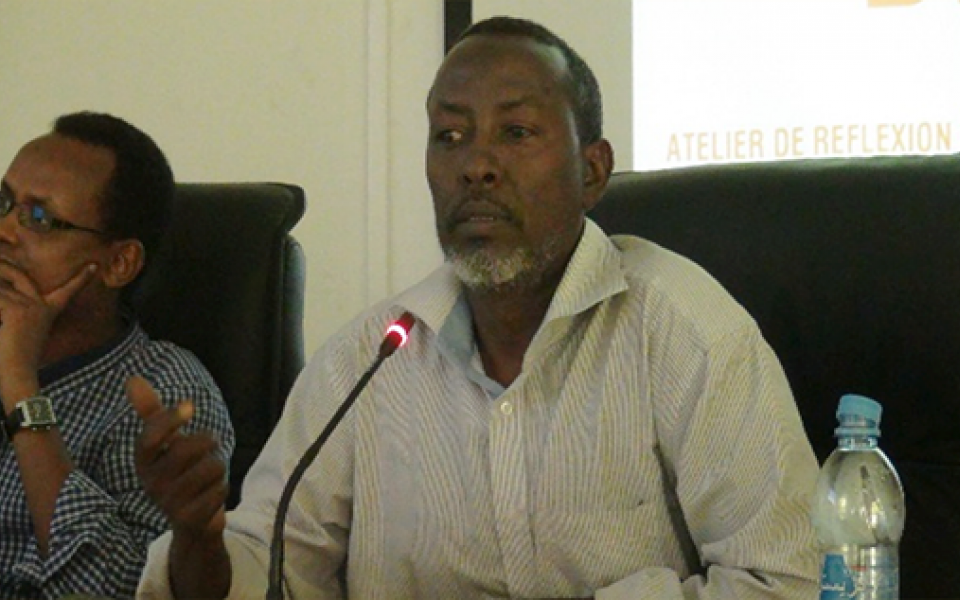
Intervention of an independent consultant expert - Mr. ILMI Awaleh: “Traditional Mechanisms of Prevention and Resolution of Pastoral Conflicts”
This intervention was to enlighten the practical methods to end the pastoral conflicts in the Horn of Africa.
The method developed to stop this is "The Conflict Early Warning and Response Mechanism for the IGAD Regions."
IGAD, with experts of the Corn from Africa region, have developed a strategy called “CEWARN” (Conflict Early Warning and Response Mechanism).
The countries of IGAD, after a decade of wars and conflicts between different tribes, have developed this theory, which returned in force after the Khartoum Declaration adopted at the Summit of the IGAD Heads of State in 2000, and the
Development of Protocol CEWARN emerged in 2000-2002 and methodology in 2003.
The objective of this cell is to analyze, verify and understand the development of crises and pastoral conflicts. The idea is:
- To promote information exchange and collaboration between Member States of IGAD in the area of early warning and rapid response to conflict;
- To design and send the best / worst case scenarios and the most probable cases and their reaction options to decision makers through CEWERUs;
- To create links by sharing information with other organizations with whom they work closely to resolve as quickly as those.
The CEWERUs serves as a regional coordination office of the Early Warning Mechanism and rapid response. It houses the national data base system and regional 'Cewarn reporter' and is responsible for the standard update, supervision, coordination and quality control of the collected data and produced analyses.
CONCLUSION
The participation of a large audience composed mostly of young members of associations, academics, and intellectuals of Djibouti, has shown us how necessary it is to create a platform for discussion and exchange of experience between youth and intellectuals nationally and regionally. Strengthening youth participation in discussions of ideas with intellectuals and experts is one way to prepare future leaders of the region of the Horn of Africa. In this, URI Horn of Africa indeed wants to strengthen the structures that allow dialogue between cultures and diversity in the region so that we can better accompany this globalization forced march.
URI is campaigning for the creation of a youth forum in the Horn of Africa so that it becomes one of the actors of change through concrete proposals, youth tours to promote the culture of peace, and creative and innovative approaches to prevent radicalization. URI-Horn of Africa will rely on partners to better carry the message of peace and intercultural exchange. In the first place we think that the National Assemblies are the institutions that best represent the diversity. In this regard it is essential that national MPs carryout the message of tolerance, compassion and peaceful coexistence of communities.
Proposal following the workshop:
- Strengthen the organization of workshop reflections and debates on the national and regional level;
- Create a platform for exchange and sharing of experiences between youth and the intellectuals or experts;
- Make Djibouti and IGAD an exchange hub and sharing of experiences of youth in the African horn to better carry the universal values ??of peace , tolerance and social justice;
- Strengthen the promotion of civic engagement of youth;
- Strengthen the promotion of diversity and intercultural and inter-religious dialogue in partnership with parliamentarians, youth, civil society, governments and international organizations.
Thanks
We thank:
- IGAD and its Executive Secretary
- Experts
- Members of the Horn of Africa URI Cooperation Circle
- University students
- Association members
- Representatives of human rights organizations
- Parliamentarians
- The representatives of the IFD and EUCAP Nestor
- Participants
